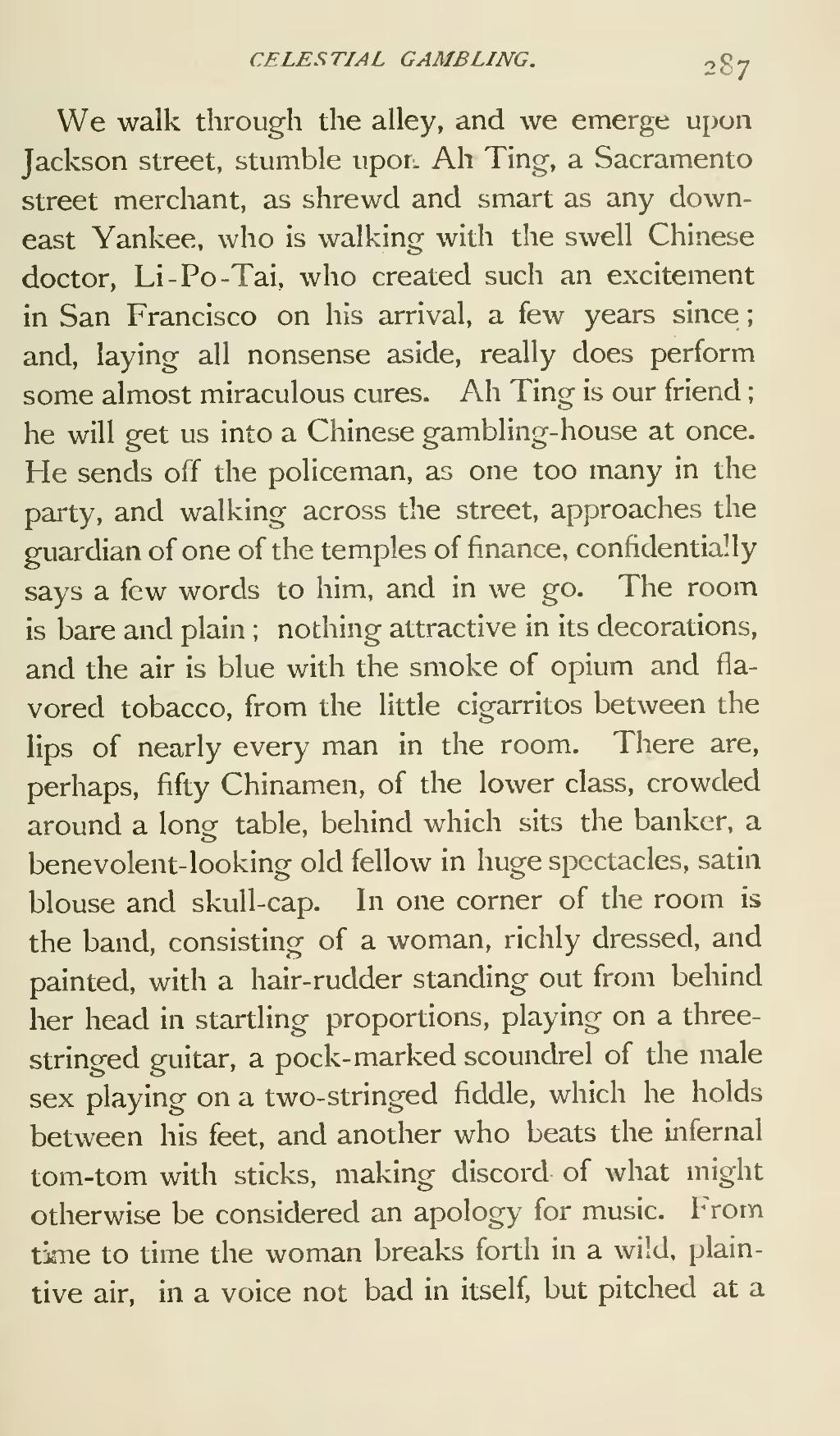We walk through the alley, and we emerge upon Jackson street, stumble upon Ah Ting, a Sacramento street merchant, as shrewd and smart as any downeast Yankee, who is walking with the swell Chinese doctor, Li-Po-Tai, who created such an excitement in San Francisco on his arrival, a few years since; and, laying all nonsense aside, really does perform some almost miraculous cures. Ah Ting is our friend; he will get us into a Chinese gambling- house at once. He sends off the policeman, as one too many in the party, and walking across the street, approaches the guardian of one of the temples of finance, confidentially says a few words to him, and in we go. The room is bare and plain; nothing attractive in its decorations, and the air is blue with the smoke of opium and flavored tobacco, from the little cigarritos between the lips of nearly every man in the room. There are, perhaps, fifty Chinamen, of the lower class, crowded around a lone table, behind which sits the banker, a benevolent-looking old fellow in huge spectacles, satin blouse and skull-cap. In one corner of the room is the band, consisting of a woman, richly dressed, and painted, with a hair-rudder standing out from behind her head in startling proportions, playing on a three-stringed guitar, a pock-marked scoundrel of the male sex playing on a two-stringed fiddle, which he holds between his feet, and another who beats the infernal tom-tom with sticks, making discord- of what might otherwise be considered an apology for music. From time to time the woman breaks forth in a wild, plaintive air, in a voice not bad in itself, but pitched at a
